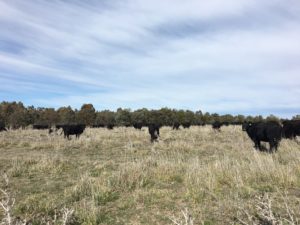As preparations get under way for the National Drought Summit in Canberra tomorrow, Landcare has reminded the nation’s leaders that Australia’s grassroots community Landcare movement is central to responding to this drought and preparing for future droughts.
Landcare NSW is pleased that well-known Victorian Landcarer and former Member of Parliament, Sandy McKenzie, has been invited to the Drought Summit.
Landcare NSW Chair, Mr Rob Dulhunty, said, “Sandy will convey the message that Landcare is community-driven, cost-effective and achieves great outcomes for agriculture, environment and people.”
A recent study commissioned by Landcare NSW showed the volunteer Landcare movement contributes $500m in economic value to NSW each year.
The 30-year old Landcare model builds motivated, engaged communities from the grassroots up rather than directed from top down. This approach is critical to building adaptive capacity and resilience which are essential to responding to the immediate challenge of the drought and to managing future droughts.
“Landcare equips communities and farmers with skills, resources and support to change practices and deliver environmental projects. Despite the longevity of Landcare and its value to the community we have seen a reduction in federal funding for the supportive infrastructure that underpins the Landcare model,” explained Mr Dulhunty.
Landcare CEO, Dr Adrian Zammit, added: “Like any other volunteer movement, Landcare cannot operate without professional staff and infrastructure. In NSW a renewal of the partnership with the State Government has enabled a resurgence in Landcare activity across the State but support structures must be maintained and supported by all levels of Government.”
As our nation’s leaders consider how to respond to the drought, Mr Dulhunty said investment should address the causes not just treat the symptoms.
“Previous Federal investment in Landcare focused on changing social norms and building capacity and engagement in local communities. Local people were involved in designing and implementing programs,” explained Mr Dulhunty.
“Recently we’ve seen the Federal Government move in a direction that has left many Landcare groups without the core support they need to exist.
“Despite it being called the National Landcare Program, it is not doing much to support the continued existence of the grassroots Landcare community despite the proven model and willingness of thousands of farmers and individuals to get involved.”
The provision of funding for Landcare (that is, professional staff and infrastructure), should be considered by local, state and federal governments as an investment that equips and enables communities to improve and restore the environment and respond to pressing issues such as drought.
Documents:


